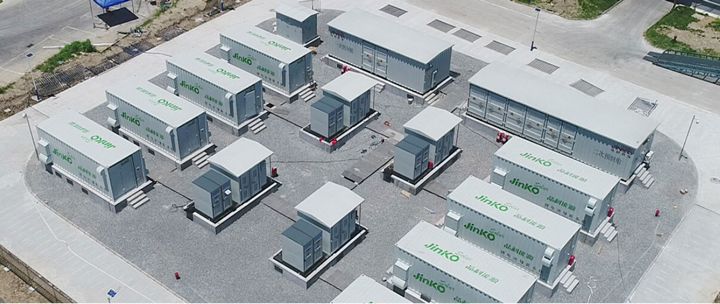Although contracts for solar and energy storage are inherently different, many of the terms and conditions remain the same, so customers can enjoy a more streamlined purchasing process, reducing cost and time.
 Jinko Solar Expands into Energy Storage
Jinko Solar Expands into Energy Storage

Q&A with Jeff Juger, Deputy General Manager | at JinkoSolar (U.S.) Inc
Who is Jinko and what sets you apart?
Founded in 2006 and listed on the NYSE since 2010, Jinko is a leading global manufacturer of solar modules and battery energy storage. The company is the first in the world to deploy 100 GW, 200 GW, and 300 GW of PV modules cumulatively, including over 28 GW of PV modules to the U.S.
With a rapidly growing number of manufacturers, bankability has become a critical factor. Multiple third-party organizations have rated Jinko the most bankable supplier in the world. Jinko is AAA rated by PV Tech, number 1 of 40 by Wood Mackenzie’s ranking, and the only company rated bankable by 100% of participants in BNEF’s 2025 bankability survey. Jinko has also been rated as a BNEF Tier 1 battery supplier for four consecutive quarters.
Jinko is a responsible manufacturer. Jinko was the first PV company to join the RE100 and the first to have its net-zero goals approved by the Science Based Targets initiative (SBTi).
Customers need a manufacturer who is not simply an opportunistic supplier, but a flexible, adaptable, and committed partner who can navigate complex geopolitics and trade policy. Jinko has the world’s largest vertically integrated PV supply chain outside China, including a manufacturing plant in Jacksonville, where we employee over 700 Americans. Jinko also uses its vast purchasing power and procurement expertise to create versatile battery supply chain solutions.
Jinko is a well-known leader in the solar industry. What motivated the company to expand into energy storage and how does this complement your existing portfolio?
Solar and energy storage complement each other, and Jinko’s customers often use both in their projects. Customers have grown to trust Jinko as a steady supplier with balanced contracts. It made sense to supply both. Although contracts for solar and energy storage are inherently different, many of the terms and conditions remain the same, so customers can enjoy a more streamlined purchasing process, reducing cost and time.
What’s unique about Jinko’s energy storage solutions?
As is the case in PV, Jinko is a technology leader in energy storage with more than 400 issued patents. This includes a patented liquid cooling design to allow for higher energy density while maintaining strong safety standards. In fact, Jinko has had zero safety or fire incidents in its energy storage systems. Jinko has an extensive component qualification system to ensure it is selecting the best products for Jinko systems. Furthermore, Jinko has implemented robust cybersecurity measures through EAGLE® Edge and other features. These include a 24/7 security operations center based in Denver, selecting NERC-CIP and NIST certified parts like non-China BMS, unit controller, and firewalls to create air gaps against external intrusions and potential cyber-attacks.
What differences are there in the PV and energy storage sectors?
Energy storage systems have a lot more fire risk than PV systems. Jinko features smoke, thermal, H2, and CO sensors to detect any anomalies and a state-of-the-art fire suppression system. Jinko is fully compliant with NFPA 855 ESS safety guidelines. Furthermore, PV supplier responsibilities tend to end after delivery (other than warranty support); energy storage suppliers need to offer long-term service agreements to be successful. Jinko’s LTSA includes remote monitoring, semi-annual preventative maintenance, emergency field services, and end-of-life management. Jinko’s LTSA also supports wrapped warranties on complete systems, flexible warranties, and capacity guarantees.
There’s a lot of focus on DC Blocks and AC Blocks. Could you explain the difference between the two?
DC Blocks are battery equipment that include battery cells, a BMS, and fire safety equipment. They require an external PCS, along with other components like EMS. In contrast, an AC Block contains both the battery equipment and PCS in one enclosure. DC Blocks offer more flexibility to customers on the equipment to use, whereas in an AC Block customers must accept the supplier’s decisions on all components. Due to the all-in-one nature of AC Blocks, there are fewer steps to install and commission.
What is Jinko’s vision for the future of energy storage, and how do you see the market evolving in the next few years?
In the C&I market, Jinko is seeing a growing trend toward more AC block (All-In-One systems) that are modular to some degree. It is believed that VPPs will drive more small-scale C&I entities to adopt storage, creating a demand for scalable solutions that can cater to projects of any size.
The content & opinions in this article are the author’s and do not necessarily represent the views of AltEnergyMag
Comments (0)
This post does not have any comments. Be the first to leave a comment below.
